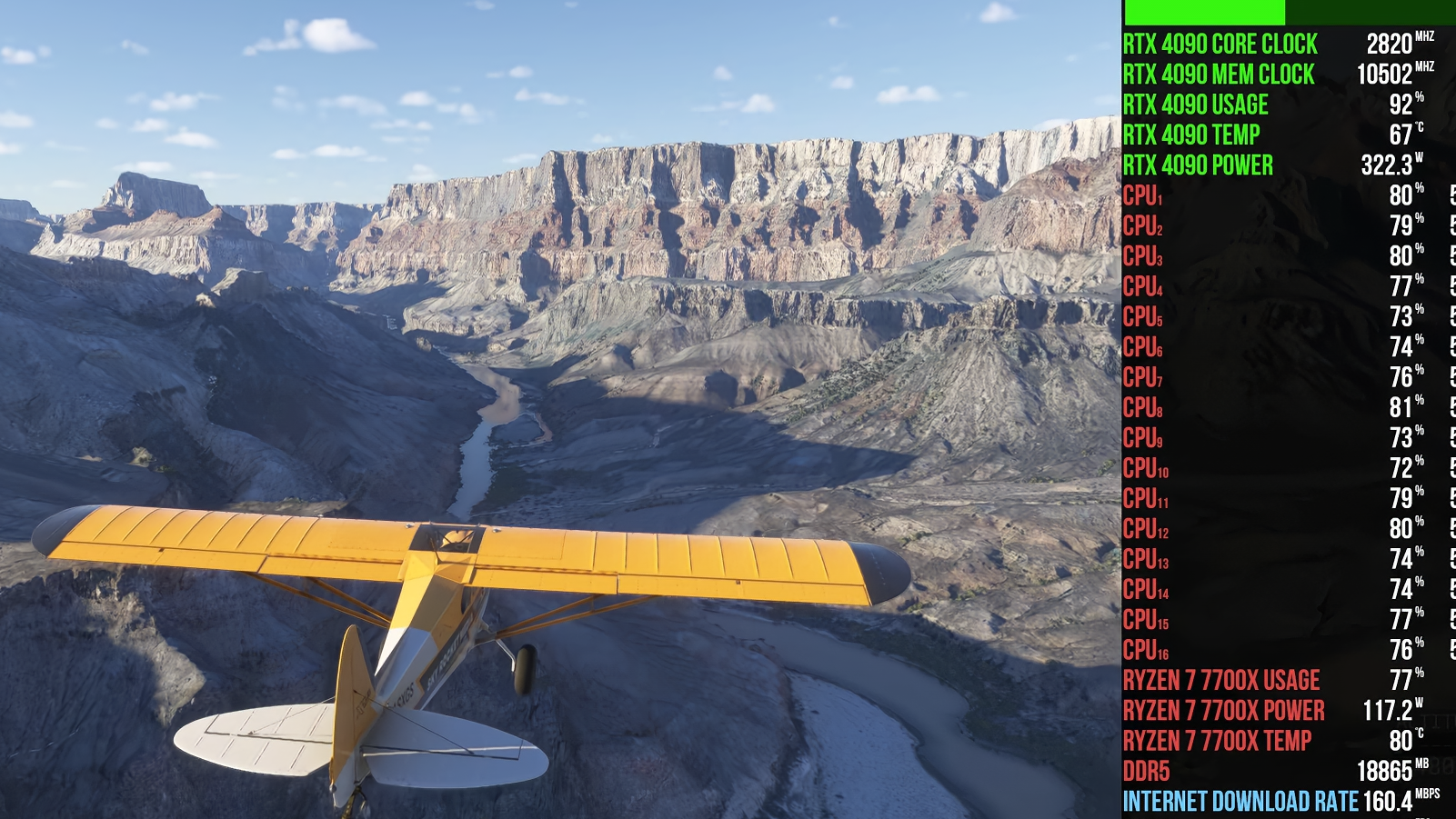Microsoft Flight Simulator 2024 sucks up to 180 Mb/s of internet bandwidth while in flight — peak rate equivalent to 81GB of data per hour
At least that install size is light, right?

Testing of an early technical alpha of Microsoft Flight Simulator 2024 has revealed that the game's streaming data demands can reach as high as 180 Mb/s while in flight—a number that places peak utilization somewhere around 81GB per hour of gameplay at high LOD settings flying over densely populated areas.
Microsoft Flight Simulator 2024 has already caused some controversy due to its highly recommended specifications, but it's been noted that it has a much lower base install size than Flight Simulator 2020, at about 30 GB instead of the 130-400 GB required for Flight Simulator 2020 (higher range including DLC).
Meanwhile, scattered reports of MS Flight Sim 2020's bandwidth consumption point toward a more conservative ~100 Mb/s in densely populated photogrammetry areas, such as major cities. Usage in lighter areas could dip as low as 10 Mb/s, though the official Microsoft bandwidth recommendation for that game was 50 Mb/s.
Now, there is a chance that this higher streaming bandwidth is necessitated by the smaller install size of the MS Flight Simulator 2024 technical alpha, which is just 9 GB compared to the 30GB of the final game. However, considering the already somewhat high bandwidth demands of Flight Simulator 2020, even with all its available local content installed, and the fact that Flight Simulator 2024 is expected to do higher-fidelity simulations of the planet yet to fly around on, these bandwidth demands make a twisted kind of sense.
But are they sustainable for end users? It's hard to say. Data caps on home Internet plans in the United States can range from 150GB to 1TB to fully uncapped traffic, depending on plan and provider. But for those who fall on the lower end of that spectrum or who don't even have an Internet connection with the speed to meet or exceed 180 Mb/s, the demands of Flight Simulator 2024 may be too intensive.
The title also has an option to download some content directly to your drive, and just like the current version of the game, there is also a rolling cache setting available. These mechanisms could help reduce overall bandwidth needs, but the overall impact is still not yet known — MSFS 2024 does have a heavy focus on real-time streaming of air traffic and assets.
Of course, we should wait for the game's final release before dooming and glooming too hard about the outlook here. But gamers who have to work around strict data caps should be wary of Flight Simulator, especially the 2024 rendition, if what we've been seeing so far is any indication.
Get Tom's Hardware's best news and in-depth reviews, straight to your inbox.
Edit 10/16/2024 3:30am PT: Added details about rolling cache.

Christopher Harper has been a successful freelance tech writer specializing in PC hardware and gaming since 2015, and ghostwrote for various B2B clients in High School before that. Outside of work, Christopher is best known to friends and rivals as an active competitive player in various eSports (particularly fighting games and arena shooters) and a purveyor of music ranging from Jimi Hendrix to Killer Mike to the Sonic Adventure 2 soundtrack.
